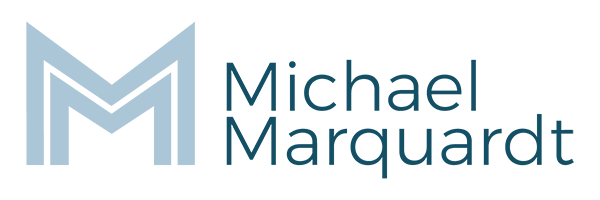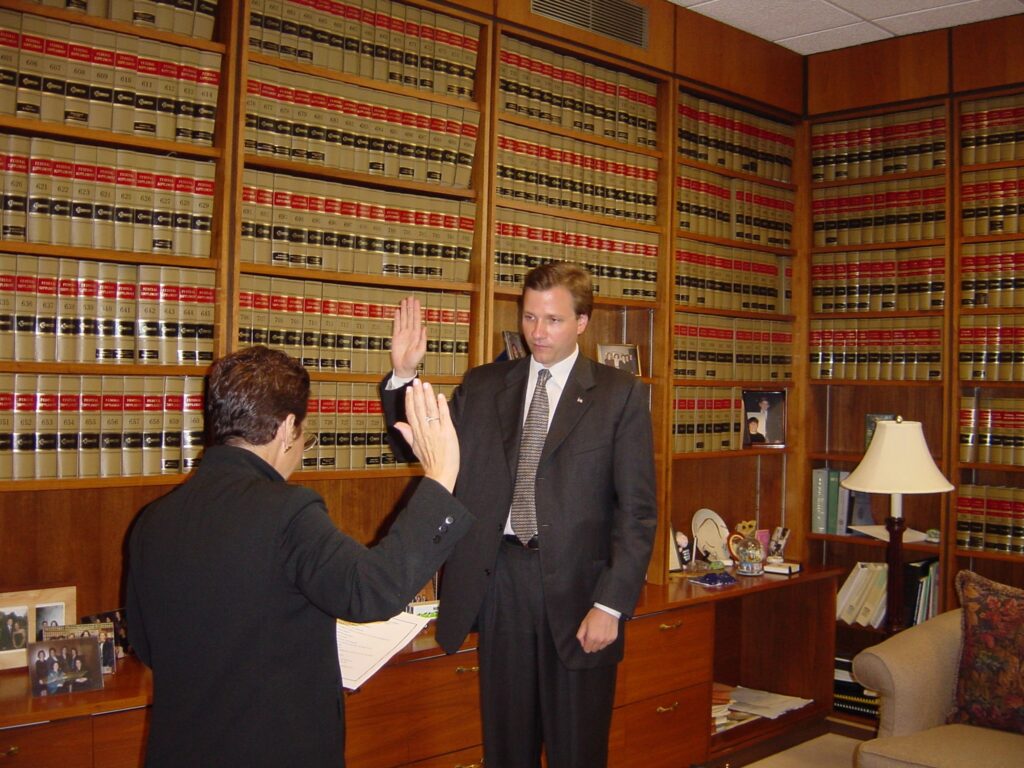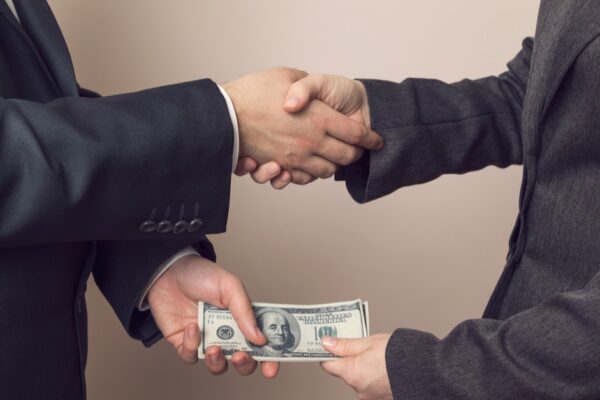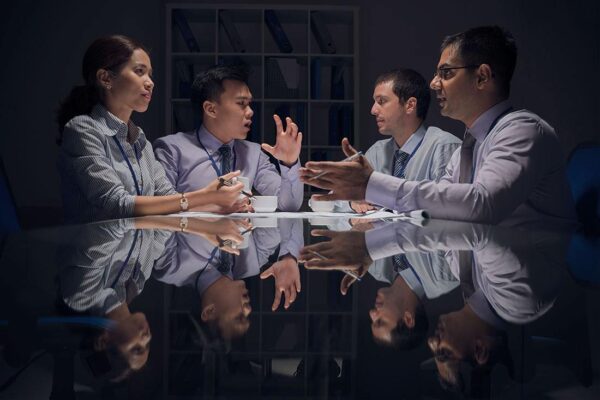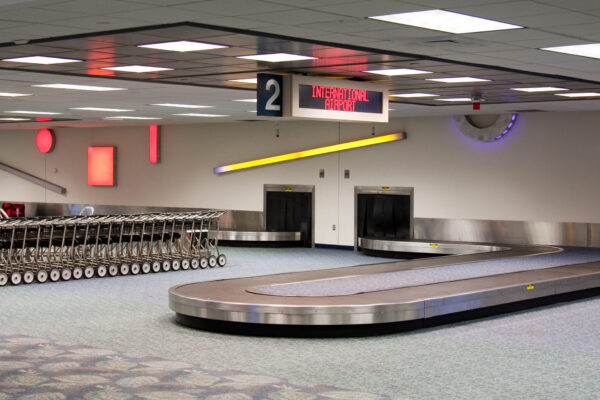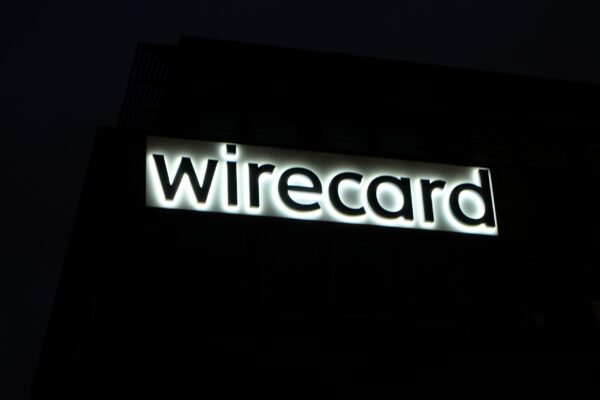As we celebrate America’s birthday and reflect on what it means to be an American, I want to share my perspective as a naturalized American citizen who grew up in divided Germany dominated by a nearly 14-foot, 96-mile long concrete wall.
I was born in in 1970 in what was then known as West-Berlin, Germany. The hot phase of the Cold War had gradually receded a few years earlier and my parents had been encouraged to move to the former German capital in 1967 by a double-promotion that was offered to my father, who was a young surgeon, by the city’s largest hospital. West-Berlin had experienced a severe drain of talent across all sectors of industry and academia and it took extraordinary efforts to try and attract highly qualified professionals to relocate to Berlin because it was an island in the middle of Soviet-controlled East Germany with access tightly controlled by three gun-manned checkpoints. Imagine today being a young doctor and receiving an offer to become chief of surgery at a large hospital in Kiev, Ukraine. Not everyone would jump at it, but some would. My Dad — all of 30 years old and just married — did jump at it. And West-Berlin may not have been exactly like Kiev is today, but the comparison is more apt than you might think. It was common to see tanks rolling in the streets (you would hear and feel them long before you would see them) or to watch military aircraft criss-cross the sky. West-Berlin was itself divided among the French, the British, the American sectors, and there was extensive military signage on the streets indicating when you were leaving or entering different sectors.
As a teenager growing up in West-Berlin, I was exposed to American culture and happily so. The most popular radio stations were RIAS (which stood for “Radio in the American Sector”) and AFN (“Armed Forces Network”). Both almost exclusively played American music and provided a regular diet of news from the United States. There also were certain perks to growing up in a city that was effectively under military occupation. For example, unlike most other large cities, West-Berlin had no curfew. Bars and nightclubs could — and would — stay open all night long, often only closing at day break in the morning. The city’s legendary nightlife today dates back to those years. In fact, it took the global coronavirus pandemic for government authorities to implement the first nighttime curfew in more than 70 years.
In school we studied the history of the Berlin Airlift. On June 24, 1948, the Soviet government announced the closing of all road access to and from West-Berlin “for repairs.” Then they stopped all rail and shipping traffic to and from the city. The objective was to starve West-Berlin and cause the withdrawal of American, British, and French troops. Allied forces, led by the United States Air Force and the British Royal Air Force decided to supply the city from the air. It was an audacious undertaking to supply a city of 2.2 million people entirely from the air. When the Soviet blockade started, the city had 36 days worth of food, 4-5 months worth of gasoline, coal to heat homes for only 35 days. The Berlin Airlift lasted more than a year and in that time 277,569 flights were completed, on average providing 6,000 to 7,000 tons of supplies each and every day. When the Soviet government realized that its blockade was a failure, Soviet leader Khrushchev called it off in the summer of 1949. Learning this history was the first time it became clear to me how America had played an absolutely critical role in keeping Berlin alive and preventing it from ending up on the wrong side of the Iron Curtain.
But the Cold War carried on. The Berlin Wall was erected by the East German government in 1961, creating a militarily reinforced physical barrier surrounding West-Berlin. There were guard towers, mined “death strips,” and automatic machine guns set off by photoelectric cells. Before the wall had been built, it is estimated that more than 3 million East Germans had defected to the West and the government wanted to put a stop to that. In 1963, 22 months after the Berlin Wall went up, President John F. Kennedy came to West-Berlin to demonstrate America’s continued commitment to the city and to West Germany as a whole. This is when President Kennedy gave one of his most famous speeches. I distinctly remember reading the English transcript and the German translation in 5th grade. The speech was an incredible morale boost for West-Berliners living deep inside an enclave inside East Germany and always fearing a possible invasion by Soviet-backed East German troops. Speaking in front of more than 100,000 in front of West-Berlin’s city hall, President Kennedy said:
“Two thousand years ago, the proudest boast was civis romanus sum [“I am a Roman citizen.”]. Today, in the world of freedom, the proudest boast is “Ich bin ein Berliner!” [“I am a Berliner!”]. All free men, wherever they may live, are citizens of Berlin, and therefore, as a free man, I take pride in the words “Ich bin ein Berliner!”
I was touched deeply by his words and the way President Kennedy delivered them. Here was a country that had mobilized massive resources to protect and defend the city of my birth. The President of the United States had come all the way across the Atlantic Ocean to offer a message of support from America. And I am a Berliner! When I first watched President Kennedy give that speech projected on the classroom wall during an English class in the early 1980s, when I heard him say “Ich bin ein Berliner!”, an instinctive reaction somewhere in my subconscious was, “Then I want to be an American!”
In June 1987, when I was 16 years old, another American president, Ronald Reagan, came to my city and gave a speech in front of the Brandenburg Gate. I remember it being my Mom’s birthday, and I didn’t watch the news that evening since we were having a little party for her. But the newspapers the next day amplified President Reagan’s plea, delivered just feet from the Berlin Wall, “Mr. Gorbachev, tear down this wall.”
Fast forward two years to November 1989…I was there, at the Brandenburg Gate, when the Berlin Wall fell. It is impossible for words to do justice to the emotions that I felt back then. I still become teary-eyed when I think back to those days. As East and West Germany reunified on October 3, 1990, it became clear once again the critical role America played in the negotiations between the Soviet Union, Great Britain, France, and other NATO countries. No serious historian can question the positive impact that American diplomacy played — not only in the survival of Berlin, but in Germany being the economic engine of Europe that it is today.
In May 1991, I boarded a plane at Berlin’s Tegel airport bound for America. 20 years old, having graduated high school the year before and after having spent some time in Geneva to learn French, I had decided to emigrate to America. I had sold most of my possessions and fit almost everything else into two large suitcases. I spent the next three years at the University of New England in southern Maine, earning a Bachelor of Science degree in Medical Biology with a minor in Humanities. From there I went to the University of Virginia in Charlottesville to earn a Master’s Degree in Chemistry. In 1996, I joined an early Internet startup company in Michigan, which one year later, I led as President at the age of 26.
On July 1, 2002, I was sworn in as an American citizen by a federal judge in Detroit. At that time I was about to be engaged to my wife Claire. She was working then as Senior Counsel to Delaware’s senior U.S. Senator, Joseph R. Biden, Jr., as one of his top aides. Senator Biden had arranged to have a U.S. flag flown over the Capitol in Washington D.C. in my name, and Claire presented me with that flag during a small dinner celebrating my citizenship that evening. When Claire and I were married in August 2003, the future President of the United States gave the toast, taking the place of Claire’s long-deceased father.
Given my story of growing up in Berlin, Germany; arriving in the United States 32 years ago; becoming a U.S. citizen 21 years ago; and 60 years after President Kennedy’s pivotal speech, I am eternally grateful to be an American citizen.
